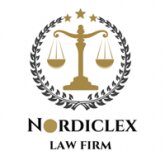Best Antitrust Litigation Lawyers in Helsinki
Share your needs with us, get contacted by law firms.
Free. Takes 2 min.
List of the best lawyers in Helsinki, Finland
About Antitrust Litigation Law in Helsinki, Finland
Antitrust litigation in Helsinki, Finland refers to legal proceedings concerning alleged violations of competition laws that are designed to maintain fair competition and protect consumers and businesses from anti-competitive practices. The main aim of antitrust law in Finland is to prevent unlawful agreements, abuse of dominant market positions, and mergers that would significantly restrict competition. These cases often involve complex commercial practices, require detailed economic analysis, and may be initiated by public authorities or damaged parties. Finnish antitrust law is closely harmonized with European Union competition rules, making both national and EU regulations relevant in litigation proceedings.
Why You May Need a Lawyer
There are various situations in which individuals or businesses might need legal assistance in antitrust litigation in Helsinki. These include responding to investigations by the Finnish Competition and Consumer Authority (FCCA), defending against or initiating lawsuits alleging anti-competitive conduct such as price fixing, market sharing, cartel activity, abuse of dominance, or challenging anti-competitive mergers and acquisitions. Legal support is also critical if you have suffered damages due to another company’s unlawful practices and wish to claim compensation. Antitrust cases are complex, involve significant risks and potential penalties, and require a deep understanding of both national and EU law, making qualified legal help essential.
Local Laws Overview
Antitrust litigation in Helsinki is governed principally by the Finnish Competition Act and applicable EU competition regulations. Major elements include prohibitions on cartels and restrictive agreements, bans on abuse of dominant positions, and requirements for pre-approval of certain mergers and acquisitions. The FCCA investigates suspected infringements and can impose administrative sanctions or refer matters to the Market Court, which has the authority to adjudicate competition disputes and impose fines. Local law provides mechanisms for both public enforcement by authorities and private enforcement by businesses or individuals harmed by anti-competitive activity. Proceedings can involve intricate procedural requirements and economic evidence, in line with Finnish judicial standards and EU directives.
Frequently Asked Questions
What is considered an antitrust violation in Helsinki, Finland?
Common violations include agreements between competitors to fix prices, divide markets or restrict outputs, abuse of a company’s dominant market position, and mergers that could significantly impede effective competition.
Who enforces antitrust laws in Finland?
The Finnish Competition and Consumer Authority (FCCA) enforces antitrust laws in Finland and can bring suspected infringements to the Market Court.
Can a business be fined for anti-competitive practices?
Yes, both fines and corrective measures can be imposed on businesses found to be in violation of competition laws. These penalties can be substantial and may have serious reputational consequences.
How can I report suspected anti-competitive activity?
Suspected breaches can be reported to the FCCA. Whistleblowers may be offered certain protections when providing information about illegal practices.
Can I claim damages if my business has suffered due to another’s antitrust violation?
Yes, Finnish law allows private parties to seek compensation through civil litigation if they have suffered harm from anti-competitive conduct.
Are antitrust laws the same across the European Union?
There is a high level of harmonization, but each EU country, including Finland, applies both national and EU competition rules. EU laws take precedence in cross-border cases or where EU trade is affected.
What should I do if my company is under investigation by the FCCA?
You should seek legal counsel immediately. Lawyers can guide you through the process, protect your rights, and help coordinate responses to official inquiries.
Is leniency available for companies that self-report?
Yes, leniency programs exist for companies that voluntarily disclose involvement in cartel activity, potentially reducing or avoiding penalties under certain conditions.
How long do antitrust litigation proceedings take?
The timeline varies depending on the complexity of the case, but antitrust proceedings can be lengthy and may take several months or even years to resolve.
Why is legal representation important in antitrust cases?
Antitrust litigation involves complex legal and economic concepts, and the consequences of adverse outcomes can be severe. Experienced legal counsel improves your chances of a favorable result and ensures compliance with procedural requirements.
Additional Resources
- Finnish Competition and Consumer Authority (FCCA) - for information, guidelines, and reporting tools - The Finnish Market Court - main judicial body for competition disputes - Ministry of Economic Affairs and Employment - oversees competition policy - European Commission Directorate-General for Competition - for cases with EU-wide impact - Finnish Bar Association - for locating qualified competition law specialists
Next Steps
If you believe you are involved in or affected by anti-competitive conduct, or are facing investigation by authorities, the first step is to consult with a lawyer who specializes in antitrust litigation. Gather all relevant documents and evidence related to your case. Your legal advisor will provide a confidential assessment, outline potential risks and strategies, and help you navigate the investigation or litigation process. For initial guidance, you may wish to contact the FCCA or a reputable law firm with experience in competition law. Timely professional advice is the best way to protect your interests and ensure compliance with all regulatory requirements.
Lawzana helps you find the best lawyers and law firms in Helsinki through a curated and pre-screened list of qualified legal professionals. Our platform offers rankings and detailed profiles of attorneys and law firms, allowing you to compare based on practice areas, including Antitrust Litigation, experience, and client feedback.
Each profile includes a description of the firm's areas of practice, client reviews, team members and partners, year of establishment, spoken languages, office locations, contact information, social media presence, and any published articles or resources. Most firms on our platform speak English and are experienced in both local and international legal matters.
Get a quote from top-rated law firms in Helsinki, Finland — quickly, securely, and without unnecessary hassle.
Disclaimer:
The information provided on this page is for general informational purposes only and does not constitute legal advice. While we strive to ensure the accuracy and relevance of the content, legal information may change over time, and interpretations of the law can vary. You should always consult with a qualified legal professional for advice specific to your situation.
We disclaim all liability for actions taken or not taken based on the content of this page. If you believe any information is incorrect or outdated, please contact us, and we will review and update it where appropriate.
















